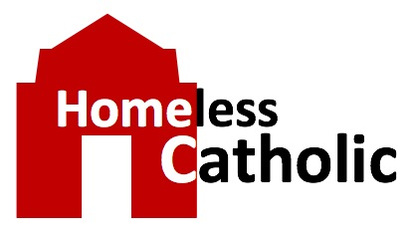Back to comfortably anxious
You might decide to go back to the normal concerns, the regular worries, the usual aggravations. Forget the news. Forget the commentators. Forget the prognosticators. Turn off the radio and TV. Discard the newspapers and magazines.
Just go back to the familiar troubles you’re comfortably anxious about.
Reflection - Fear
By Steve Hall
http://www.usccb.org/bible/readings/071120.cfm
Isaiah 6:1-8
Matthew 10:24-33
If you listen to the news you may well believe that the world is — or at least should be — in panic mode. You look at the candidates for US President and your stomach flips. Or, you look at the candidates for US President knowing that the one you oppose may win and your stomach flops. Mobs are either tearing down way too many monuments or not nearly enough monuments. People throw tantrums over black lives matter, blue lives matter, or all lives matter. Crowds insist that the police be defunded or the police be defended. The corona virus is highly contagious — or not. Children should return to school in the fall — or not. The government should mandate the wearing of masks — or not. Stores should reopen for business as usual — or not.
You might even bring these issues down to a more personal level. When will I be able to return to work? How will I go to work if the kids are still home? Is it safe to go out to eat? Is it safe to go out to shop? Is it safe to go out? Is the rioting rational? Do the police need to be defunded? Are these protesters or self-serving rioters?
On the other hand you might decide to go back to the normal concerns, the regular worries, the usual aggravations. Forget the news. Forget the commentators. Forget the prognosticators. Turn off the radio and TV. Discard the newspapers and magazines. Just go back to the familiar troubles you’re comfortably anxious about.
Three times in this Gospel selection Jesus tells the disciples: “do not be afraid.” In that context he lists several potential sources for fear: those who say you are in league with the devil; those that think they control the truth; those that can take your physical life.
The teaching sounds familiar. In many ways it echoes Jesus’ words from the latter part of the Sermon on the Mount.
"Therefore I tell you, do not be anxious about your life, what you shall eat or what you shall drink, nor about your body, what you shall put on. Is not life more than food, and the body more than clothing.”
(Matthew 6:25)
“Your heavenly Father knows that you need them all.”
(Matthew 6:32)
The sources for concern in the two passages differ. The admonition is, in the one case directed at the disciples, and in the other directed to the crowd. One passage speaks of anxiety, and the other of fear. But the point of the instruction is identical as evidenced in the reference to the sparrows.
“Look at the birds of the air: they neither sow nor reap nor gather into barns, and yet your heavenly Father feeds them. Are you not of more value than they?” (Matthew 6:26)
“Are not two sparrows sold for a small coin? Yet not one of them falls to the ground without your Father’s knowledge. . . . You are worth more than many sparrows.”
(Matthew 10:29, 31)
We tend to call upon God when we are seriously burdened, for example: when we’ve lost a job; when we or family or friends are sick; when there is domestic strife within our children’s households; whenever a serious matter arises and we seem to be out of options. But the reference to sparrows suggests that Jesus’ invitation to abandon fear is broader than that. It pertains even to the smallest of hardships or adversities.
Fears may arise abruptly, but they also creep up on us. They are not only provoked by issues of life and death; they also disturb our peace when they disrupt ordinary matters. But even the most trivial worry is not a matter of indifference to God. We are not told to call upon God when things get out of control. Rather “Call upon me in the day of trouble; I will deliver you, and you shall glorify me." (Psalm 50:15)
Peace, specifically the peace that the world cannot give, has its purpose, a purpose that frees us from whatever evil would inflict upon us.
“This was the oath he swore to our father Abraham:
to set us free from the hands of our enemies,
free to worship him without fear,
holy and righteous in his sight
all the days of our life.”
(Luke 1:73-75)
So, What are you afraid of?

